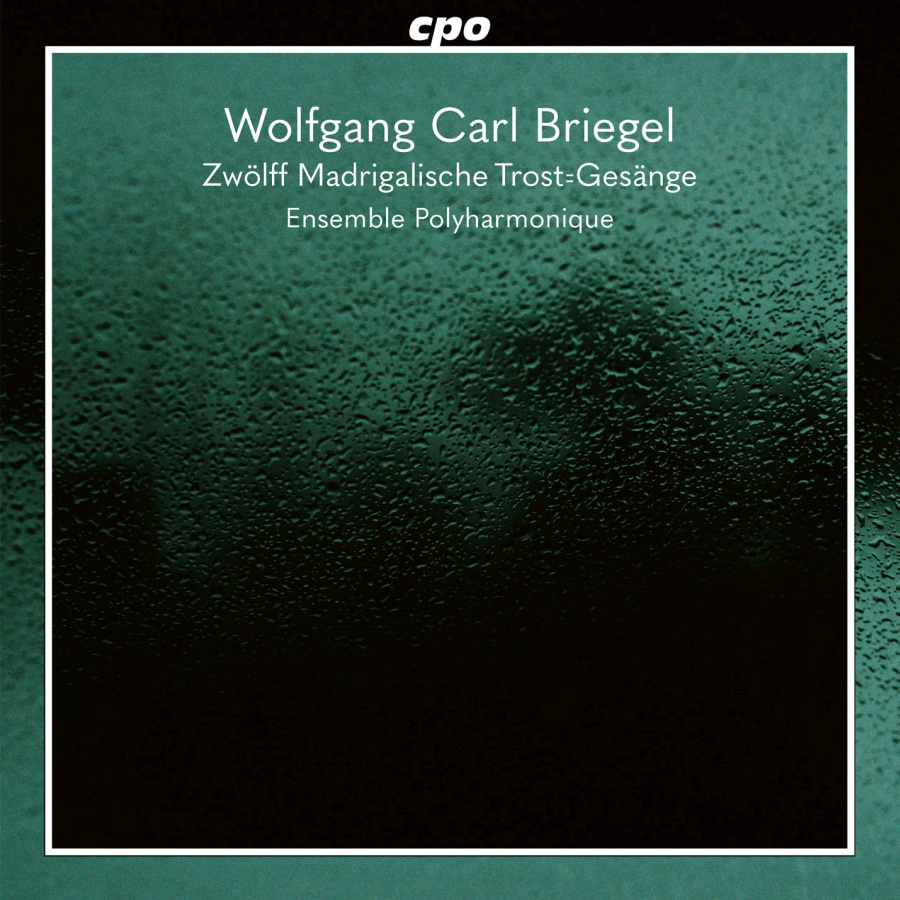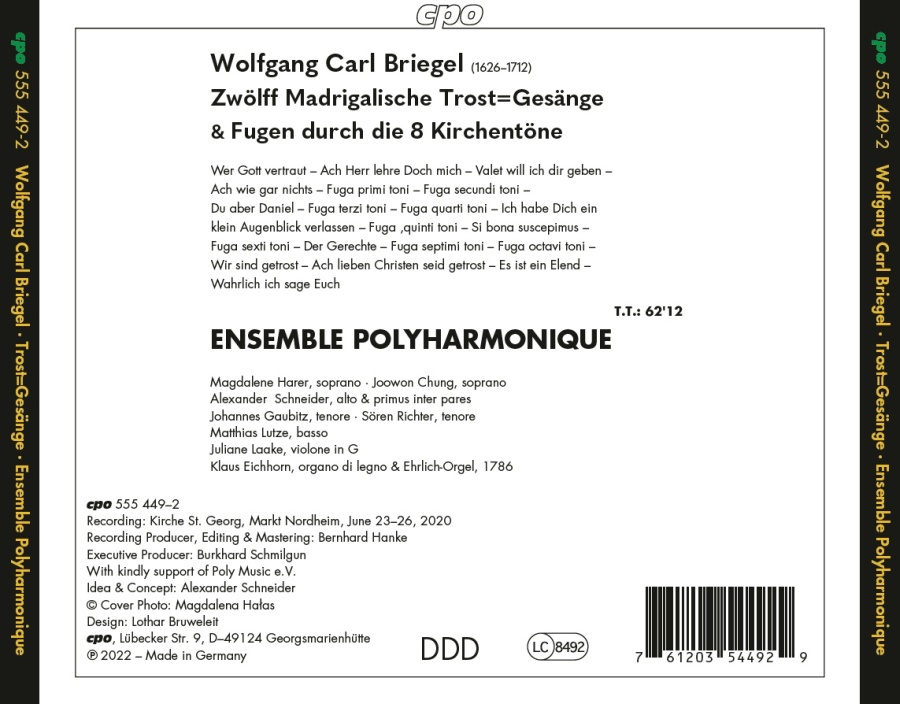
kompozytor
Briegel, Wolfgang Carl
tytuł
Briegel: Zwölff Madrigalische Trost=Gesänge
wykonawcy
Ensemble Polyharmonique
nr katalogowy
CPO 555 449-2
opis
New Release by the Polyharmonique Ensemble
»End, good; everything, good.« Wolfgang Carl Briegel placed these very consoling words at the center of the dedication that he formulated in 1671 for his Zwölff madrigalische Trost-Gesänge for five or six voices together with basso continuo. After Briegel had served without interruption over two decades at Gotha’s ducal court, he resigned from his post as court music director and solemnly bade farewell to his employer, the local lord Ernst I, Duke of Saxe-Gotha, with the publication of these twelve songs of lament. Born in Königsberg, Upper Franconia, Briegel received his initial instruction in music from Johann Andreas Herbst. Through this teacher and through Johann Erasmus Kindermann, he made indirect contact with the latest Italian styles of composition and performance. His Trost-Gesänge in very large part involve the setting of Biblical verses in the form of so-called Spruch-Motetten, in which each phrase of the sacred text is given its own musical delineation. On the whole, the collection exhibits numerous original settings of Biblical and poetic material. Some organ fugues by Briegel have been included in the work series – one in each of the eight church modes. They are very short works, but the themes are richly varied and lend expression to the special characteristics and qualities of the various modes. The interpretation by the Polyharmonique Ensemble makes this rediscovery an absolute listening delight!
nośnik
CD
gatunek
Muzyka klasyczna
producent
CPO
data wydania
02-03-2022
EAN / kod kreskowy
761203544929

(Produkt nie został jeszcze oceniony)
cena 42,00 zł
lubProdukt dostepny w niewielkiej ilości.
Wysyłka w ciągu 3 dni roboczych
Darmowa wysyłka dla zamówień powyżej 300 zł!
Darmowy kurier dla zamówień powyżej 500 zł!
sprawdź koszty wysyłkiProduktu jeszcze nie zrecenzowano, chcesz być pierwszy?
Klienci, którzy kupili ten produkt, kupili również
1 / 11
Pozostałe płyty tego kompozytora
1 / 1
Pozostałe płyty tego wykonawcy
1 / 4


























